In a coordinated and organized operation on July 31, 2022, agents of the Intelligence Ministry raided the homes of tens of Baha’is in cities across Iran and arrested a number of Baha’is including Mahvash Sabet and Fariba Kamalabadi, two women who had already spend a decade in jail.
In a statement issued the day after the arrests, the Intelligence Ministry claimed that it had arrested “members of the central cadre of the Baha’i espionage party” and accused them, among other things, of “participating in groups to act against national security through teaching and preaching the Baha’i faith to children in kindergartens, [and] agitating against Islamic Sharia through holding coaching courses.”
In the days and months after the raids, all detainees were released on bail, except Mahvash Sabet and Fariba Kamalabadi, and they have been in detention for a year now.
Kamalabadi and Sabet (Shahriari) are two former members of the “Yaran” of Iran (“Friends”), the informal Baha’i leadership group that for almost 20 years looked after the Iranian Baha’i community and with the full knowledge of the Islamic Republic’s Intelligence Ministry. Then, in 2008, members of this group were suddenly arrested by President Mahmoud Ahmadinejad’s Intelligence Ministry and the group was disbanded. Since then, no person or group has replaced the work of the former Yaran and the Baha’is manage their affairs, such as educating their children as well as weddings and funerals, by consulting and cooperating with each other.
In 2006, Fariba Kamalabadi, who has a master’s degree in educational psychology, and Mahvash Sabet, also an educator, and who had been expelled from her job as a teacher because of her faith, were asked to assist as members of the Yaran by the Iranian Baha’i community.
On March 5, 2008, Mahvash Sabet was the first of the seven to be arrested while visiting Mashhad and was later transferred to Evin Prison in Tehran. The other six were arrested on May 14, 2008, at their homes in Tehran. The seven Baha’is were placed in solitary confinement for months and spent a year behind bars without access to legal counsel. In 2010, they were tried and convicted of charges of “espionage” and “spreading propaganda against the regime.” They were each sentenced to 20 years in prison, the longest of any current prisoner of conscience in Iran.
In early 2016, the seven Baha’is were informed that, based on a new law, their sentences had been reduced from 20 years to 10 years and they were released in 2017.
During his imprisonment, Mahvash Sabet spent most of her time reading and composing poetry. The government does not allow her to publish her poetry in Iran but her books Free, Love Story, and You Remember Me have been published abroad. Selections of her poetry titled Prison Poems have been translated into English and have been well-received by readers worldwide.
In 2017, Sabet was recognized as an International Writer of Courage by PEN International, the literary freedom of expression group, and also received a prestigious literary award in Norway. She was made an honorary member of PEN in Austria and Denmark.
When Fariba Kamalabadi was arrested, her daughter was still going to school but, on the day that she was released, her daughter had become a mother. Fariba, who could not have been a mother to her own daughter, instead spent time with her grandchild after her release.
Arrested Again
On July 31, 2022, Fariba Kamalabadi and Mahvash Sabet were arrested again by security agents who raided the homes of many Baha’is across the country. The detainees were taken to solitary confinement in Ward 209 of Evin Prison but when the Woman, Life, Freedom movement began, prisons in Iran were filled with protesters, and the authorities were forced to hold several detainees in individual solitary confinement cells. In discussions with her family during visitations, Fariba has said that, due to a lack of space, they had to put their feet on the wall when they wanted to sleep at night.
The Trial of Fariba and Mahvash
On November 21, the new trial of Fariba Kamalabadi and Mahvash Sabet was held at Branch 26 of Tehran Revolutionary Court, presided over by Judge Iman Afshari. They had been scheduled to be tried separately but the proceedings were delayed so they were tried at the same time.
The two Baha'i women were once again sentenced to 10 years in prison each, after a one-hour trial, during which the judge spent most of the time insulting the defendants for managing the Baha'i community in Iran.
Kamalabadi and Sabet were sentenced on charges for which no evidence was presented nor witnesses were heard. Judge Afshari scolded the two, saying that they had not learned from their previous imprisonment.
The verdict was based on a charge that had no merit, because the Yaran was disbanded in 2008 and, since then, no individual or group has been the formal or informal leader of the Baha’i community in Iran. Both Kamalabadi and Sabet denied that they were members of any new leadership group.
Transfer to Women’s Ward
After the trial, Kamalabadi was transferred to the women’s ward for political prisoners and prisoners of conscience. Sabet was kept at Ward 209 and transferred to the women’s ward after 40 days, during which time nobody knew what had happened to her.
In April 2023, in an audio file received by IranWire, Faezeh Hashemi, a political activist and daughter of late President Akbar Hashemi Rafsanjani, herself jailed in Evin but briefly released on a leave of absence, spoke about her cellmates. “Mahvash recounts that during an interrogation the interrogator kicked the chair from under her and, since she was facing the wall, her knees hit the wall. Now, they have X-rayed her in prison and told her that the bones in her knees are broken. She is in such a condition, 70 years old, innocent and in prison only because she is a Baha’i,” Hashemi said in the recording.
People close to Fariba and Mahvash believe that the delay in transferring Mahvash to the women’s ward was most likely because of her broken knees, since interrogators wanted to keep it a secret and kept her in solitary confinement until she could walk.
According to Negar Sabet, Mahvash's daughter, her mother's arrest took place while both her parents were recovering from severe covid and seeking care at a friend's house in the north of the country. The reason for the delay in transferring her to the women’s ward was also due to her poor physical condition because of the lack of medical care.
“How to Save Iran?”
In April 2023, more than 40 political, social and human rights activists inside and outside Iran, some from inside the Islamic Republic’s prisons, joined a virtual seminar to try to answer the question: How to save Iran? Kamalabadi and Sabet were among the prisoners who sent a written note to this symposium that was held on the Clubhouse app.
“Our dear country is currently faced with far-reaching and complicated social, economic, cultural, educational, political and moral problems,” they wrote in their message. “In such a rich country, such rampant poverty, widespread deprivations, inflation and recession, air pollution and the destruction of the environment and egregious class divisions cannot be justified in any way. Bigotry and discrimination are hurting all people regardless of gender, ethnicity, language and religion.”
They expressed the hope that “next to all this mess and these restrictions and deprivations, the awareness of Iranian people has reached a new height, higher than ever, and has led to a unity in beliefs and views and, relatively speaking, to an agreement on what methods to use. Witness various protests that have recently taken place based on clear and vital demands.”
The message ends with this pronouncement: “We deeply respect the diversity in this great land of Iran and among our compatriots. We value this diversity under the unifying tent of our land and we see our great country of Iran as a flower garden, with flowers in every color, and believe that this variety makes it more beautiful. Serving our country is not only our duty but our right.”
After this message was published, both women were barred from receiving visitors or using their phones for three weeks.
Living in Legal Limbo
The lower court issued its verdicts against Kamalabadi and Sabet eight months ago but the court of appeals has yet to schedule a new trial. In the first few months, judiciary officials claimed that they have “lost” their case files – but in recent months they have said the files have been found and the case awaits its turn. Nevertheless, their lawyers are still barred from communicating with their clients and are not allowed to access their case files.
Sabet’s daughter Negar says that her mother needs medical treatment outside prison. The court did not accept the medical certificate saying that Sabet, a 70-year-old woman, cannot endure imprisonment and needs constant medical care. The certificate covered the illnesses that she suffered from before her arrest. Her broken knees have not healed completely and this has made her condition worse. The court of appeals has yet to issue a verdict, meanwhile, so while the verdict against her is not final, the court has refused to grant Sabet medical leave on bail.
"My mother is in poor health due to her old age and her previous imprisonment, which has weakened her physically,” Negar Sabet says. “She suffers from severe asthma, as well as bone pain and bone tuberculosis, which are complications from her previous imprisonment.”
“Perhaps this might seem trivial but for me, as a mother, it is important that my mother see her granddaughter, my daughter,” she adds. “It has been a year since my mother last saw her granddaughter. Soon my daughter will turn two and, considering how children grow and change at this age, my mother has no idea how she now looks. It is my mother’s right to see my daughter and to express her love to her. I hope they will allow my mother to see her granddaughter through FaceTime or some other way.”
visit the accountability section
In this section of Iran Wire, you can contact the officials and launch your campaign for various problems




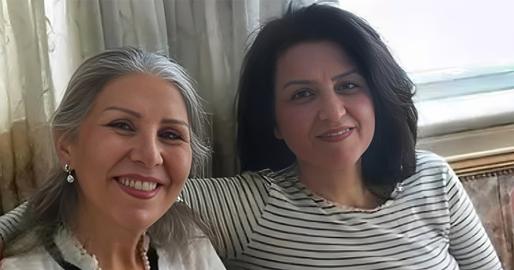




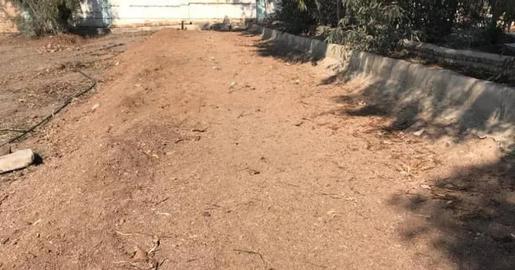
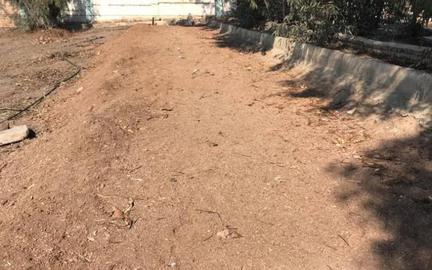

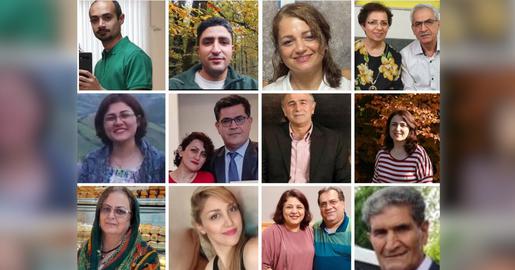
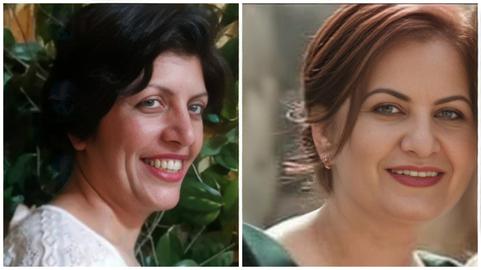



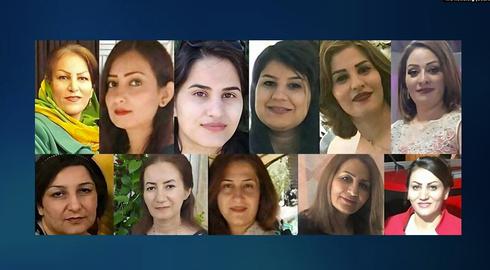
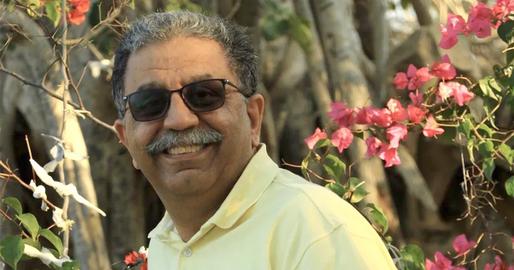



comments